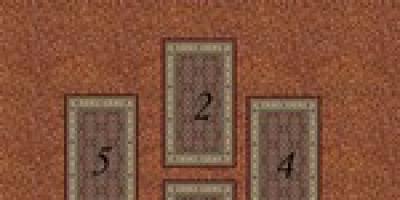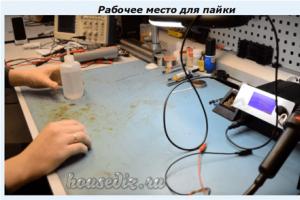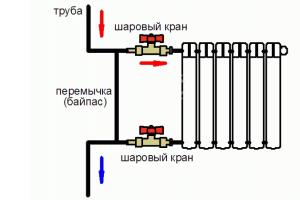The category of state is a class of words that denote an independent attribute, state and do not have inflectional forms (declension and conjugation), but can express the meaning of time using a linking verb. They usually answer the question which one? and are used, as a rule, as the main member of one-component sentences (predicative member of a compound nominal predicate).
The category of state includes unchangeable words that denote the state of living beings, nature and the environment and act as a predicate in impersonal sentences: It was quiet in the fields, but quieter in the forest and seemed brighter (N. Nekrasov); It's damp on a deserted street (A. Rosenbaum); Warm, sunny, quiet (A. Chekhov); I'm sad to look at you (S. Yesenin); It’s frosty at night, but warm during the day (V. Chivilikhin).
In modern Russian there are about 100 words of the state category. All of them are heterogeneous in composition and origin. The main body of the condition category includes:
a) words starting with -o, correlated with short forms of adjectives and qualitative adverbs (good, fun, quiet, cramped, dark, gloomy, noisy, sad, funny, shameful, bad, damp, smoky, chilly, hot, early, late ): it was gloomy outside, she felt chilly, the room was damp, the tent was smoky;
b) the words sin, disgrace, shame, disgrace, laziness, hunting, time, time, leisure, correlated with nouns; unlike the latter, they do not denote objects, but certain states: it’s a sin to laugh, I’m too lazy to play sports, I don’t have time to go shopping, I want to eat, it’s a sin to think;
c) the words necessary, possible, necessary, impossible, sorry, afraid, ashamed, ashamed, loving, unbearable, unbearable, which in modern Russian do not correlate with any parts of speech (adjectives, adverbs, nouns): he is the only one afraid here , you can keep the windows wide open, this work requires three people, it’s hard to sleep from the heat;
d) words like cover, kaput, kayuuk, cross, end in the meaning of death, death, end, correlated with interjections and differing from them not only in meaning and syntactic function, but also in the ability to control the dative case of nouns, to be combined with adverbial words: here you are and the skiff, kaput for the old man, the end of the dry winds, tomorrow they are finished.
To designate this part of speech, other terms are also used that emphasize the syntactic function of words of a given lexico-grammatical class: impersonal predicative words, predicates. In the school course, these words are treated as special adverbs.
Words of the state category do not have specific morphological features. Like adverbs, words of the state category are unchangeable, with the exception of words starting with -o, which have the form of a comparative degree, for example: It has become even colder outside. The morphological features of words in the state category include the ability to express the meaning of time, conveyed by the connective with which impersonal predicative words are combined (it was sad, will be sad, it has become fun, it will be fun). The absence of a copula serves as an indicator of the present tense.
Impersonal predicative words can be distributed by nouns and pronouns in the form of the dative case without a preposition, the genitive and prepositional cases with prepositions: I'm bored. The room is stuffy. It's sad without you. With words of the category of state there can be adverbs of place, time, quantity, measure: The room is quiet.
The category of state, not having clearly defined morphological features, like, for example, a verb, has attracted the attention of linguists for one hundred and fifty years. The difficulties encountered when distinguishing between words of the category of state are also due to the fact that we cannot fit the categories of thought of modern man into the framework of established grammatical categories. It is quite possible that in the future the category of state or the words by which it is represented will be called differently, since the term “state” indicates only their semantics, and the term “predicates” indicates the syntactic function, thus neither name can fully express the essence of the category under study. It is more erroneous to attribute the category of state to parts of speech of the Russian language, such as an adverb, adjective or verb.
It seems that the decisive moment in determining the status of words of the state category is a complete rethinking of the view on the combination “link + word of the state category”. In addition, the model “link + word of a state category” is the main way to convey the meaning of a state, primarily by expanding the functionality of the words of this group. In cases where it is necessary to emphasize the nuances of the course of a state or its relevance, preference is given to the verbal model, as a result of the categorical semantics of the verb - action. However, the etymological proximity to each other of nominal and verbal constructions makes it difficult to distinguish them, which is why when choosing one or another model one must be guided by logical-grammatical factors.
The range of linguistic means for conveying the semantics of a state in the Russian language is much wider and more diverse than in other languages. In addition to grammatical classes that nominate this meaning in full (these are directly words of the state category, short adjectives, short participles in the predicative function, constructions with prepositional case), in the Russian language state can be partially conveyed by verbs, adverbs, gerunds and case forms of nouns.
The semantic field of a state reflects the world of a person’s internal experiences, his perception of the world around him, therefore the linguistic means expressing the state are in constant development and are characterized by the departure of old ones from the language and the emergence of new ways of conveying this meaning.
All the variety of means of expressing a state in a language is the source of its replenishment. The category of state has a pronounced property of desemantizing other parts of speech and “pulling” them into its system, as a result of which they partially or completely lose their previous characteristics. All this indicates that the category of state is viable, developing, and its influence in the language will continue to grow.
State category (state name)- this is an independent part of speech, which includes unchangeable words denoting the state of an object (living beings, nature, environment) and answers the question how?, what?: You will have a little boring... There is another name - predicates.
This is a relatively new part of speech. In some textbooks, words of the category of state are not recognized as an independent part of speech and are considered as a special group of adverbs - adverbs of state. Some scientists also include short adjectives ( glad, agree, must), and adverbial expressions ( be alert, be married).
The words of the state category include only those words that are the main member of impersonal sentences (predicate) or are included in its composition: To me no time to argue with you; We have to hurry; It's a sin to laugh I'm above people.
General grammatical meaning words of the state category - state.
Morphemic features(similar to adverbs) : there are no specific signs, but most words in the state category have the suffix -o-: boring O, cheerful O.
Morphological character - immutability (similar to adverbs).
Syntax function: predicate in a one-part impersonal sentence (in a sentence without a subject): Sad(predicate) .
- In a sentence with state names
- An object (noun and pronoun) is often used in the dative case without a preposition: To him sad ( cat.condition . sad - predicate, To him - addition, D.p. );
- noun and pronoun in genitive and prepositional cases with prepositions: Easily on the heart from a cheerful song; Wonderful In the woods.
- Words of the state category may be accompanied by an infinitive, which is part of the predicate: Boring we should stay at home. (it's boring to sit- predicate).
- Words of the state category are used with a connective be indicating the time: It was stuffy. Sometimes verbs act as connectives to become, to become, to appear: It's stuffy became; Suddenly it got dark.
Discharges of words of state category by origin:
- Words starting with -o, correlated with adverbs and short forms of adjectives (up to 90% of all words in the condition category): fresh, pleasant, cool, stuffy, hot, fun, comfortable, pleasant, beautiful, sad, etc.
State category words formed from qualitative adjectives have degrees of comparison(like adverbs and adjectives). The methods and means of forming degrees of comparison for words of the state category, adjectives and adverbs usually coincide.- The comparative degree (simple) is formed using suffixes -ee (her) And -e(sometimes with the addition of the prefix By-): By the evening be quieter became; More fun And more pleasant was to go to the river.
- The superlative degree (usually a compound) is formed using the word everyone added to the comparative degree: The most offensive thing became a mother; To him sickest of all captive.
- words formed from nouns: time, time, sin, shame, hunting and etc. For example,
To me laziness get up early. Sin laugh. No joke time. It's time home. - Unchangeable words that do not find matches in other parts of speech: necessary, possible, impossible, no, sorry. For example, you it is forbidden be late.
The ranks of words of the state category by meaning.
- Quality express:
- state of nature: hot, sultry, cool, sunny, windy, gloomy, cold, dusty, etc. It was dry and dusty;
- state of the environment: dirty, damp, dark, dewy, dry, light, etc.: Golo And unfriendly In the woods;
- physical state of humans and animals: sick, sick, chilly, ticklish, sick, stuffy, heavy, hot, cold, etc.: Warm he felt it.
- mental (emotional) state of a person: fun, sad, offensive, creepy, annoying, bitter, joyful, funny, pathetic, pleasant, ashamed, afraid, sad, ashamed, easy, hard, boring: Again alarming,hurt it became heartbreaking.
Words of the state category, denoting the physical and mental state of a person, are necessarily associated with the dative case of the person. If the dative case is absent, then the state takes on a generalized meaning: Ivan became annoying. Annoying when they don't notice you. - intellectual state of a person: interesting, clear, understandable, known, characteristic, etc.: Clear it was that we were late for the train;
- Modal express:
- assessment of any state, situation: easy, good, beautiful, true, correct, difficult, etc.: Fine In the woods; Was Nice look at their work.
- temporary relationships: late, long, early: Not yet late, something needs to be done.
- spatial relationships: far, close, high, low, narrow, etc.: I was far to home.
- possibility (impossibility), obligation, necessity, assessment of various situations and states: possible, impossible, necessary, necessary, necessary, impossible, must, must, etc. It is forbidden read other people's letters.
Words of the state category (CS) arose quite late, and their properties were such that these words were noticed by linguists only in the middle of the 19th century. and still cause conflicting judgments about their grammatical status.
A number of KS words have a modal meaning, which is why some linguists of the 19th century. They were considered verbal words, verbs. This is exactly how A.Kh. defines them. Vostokov, placing them in that section of his “Grammar” where impersonal verbs are considered.
N.P. Nekrasov, taking into account the syntactic function of these words, interprets them as verb forms derived from adjectives.
F. Miklosic classified the words possible, fun, boring as adjectives, and the words it's time, sorry, etc. - to nouns.
In the works of subsequent linguists, the words KS come closer to adverbs. So, A.A. Shakhmatov, classifying adverbs, notes “Adverbs of being, state, verbal”: “perhaps cold, scary, frosty, etc.”
For the first time, the possibility of separating words into an independent part of speech was pointed out in 1928. L.V. Shcherba in his article “On parts of speech in the Russian language.” The basis for the isolation of this category of words could be, in his opinion, such properties of these words as immutability, use with a connective, inability to combine with verbs and nouns.
Following the article by L.V. Shcherba's works of domestic linguists have significantly deepened the understanding of this part of speech.
Depending on the solution to the most controversial issue - the question of the part-speech status of KS words - linguists were divided into three groups polemicizing with each other:
- The KS is an independent part of speech (V.V. Vinogradov, N.S. Pospelov, V.V. Babaytseva, A.N. Tikhonov).
- KS is not an independent part of speech (A.B. Shapiro, V.M. Zhirmunsky, L.L. Bulanin).
- KS is a special category of words, but not an independent part of speech (O.K. Baliashvili, V.N. Migirin, A.I. Valkova).
Of the three above points of view on CS, the first point of view in modern grammatical science is the most common.
KS is an independent part of speech, which is formed by indeclinable and inconjugable words denoting a state, capable of being combined with a connective and used as a predicate of an impersonal sentence (less often as a predicate of a two-part sentence with a subject, an expressed infinitive or a noun).
And it’s boring, and sad, and there’s no one to give a hand to...
Smoking is harmful.
Lying is unforgivable.
The categorical meaning of the words KS, the non-subjective state, is the most abstracted meaningful form of reflection of reality compared to other part-verbal meanings. And therefore, the class of words KS, having originated in the depths of the Old Russian language, has been especially actively developing in the last two centuries. By forming a category of words with new part-speech semantics, the language system “acts” economically. In the vast majority of cases, it does not create materially new linguistic units, but uses lexically suitable words from other parts of speech.
The words that form the KS include:
- words that do not have homonyms either among adjectives, or among nouns, or among adverbs (it is necessary, it is impossible, there is no time, it is possible, it is necessary, it is a pity);
- words that have homonyms among adjectives and adverbs na-o (warm, noisy, sad, fun);
- words that have homonyms among nouns (time, time, sin, leisure, hunting);
- words that have homonyms among adverbs (unable);
- words that have homonyms among participles (cleaned, washed).
Topic 2
I. General characteristics of the state category as a part of speech
II. Lexico-semantic categories of words of the state category
III. Morphological features of state category words. Their syntactic functions
In the first half of the 19th century. in the works of domestic linguists, a category of unchangeable words is consistently identified, which in form coincide with nouns, adjectives, adverbs, but have the meaning of state and are used as a predicate in an impersonal sentence (laziness, pity, possible, shameful, funny, fun, stuffy, etc.). Such words began to be called either a state category, or predicatives, or impersonally - predicative words. Their place and composition in the system of parts of speech was determined ambiguously.
In modern linguistics, two approaches to words of the state category predominate.
The first approach recognizes the category of state independently, but as a significant part of speech (L. V. Shcherba, V. V. Vinogradov, etc.); the second - denies that the category of state belongs to an independent part of speech and includes it with special rights in the composition of adverbs (A.B. Shapiro and others).
The grammatical meaning of words in the category of state is associated with the expression of state in its broadest sense (sad, painful, cold, etc.).
II. Lexico-semantic categories of words of the state category
According to their lexical semantics, words of the state category are divided into the following groups:
denoting the physical state of a person, animal (him chilly, dog hurt);
denoting the physical condition of a person (for a child funny, adult sad);
· denoting a modal assessment of the subject’s state (necessary, impossible, possible, laziness, lack of time);
· indicating an assessment of the state of nature and the environment (windy, cold, dark, stuffy);
· denoting an assessment of the state of the environment in terms of temporal and spatial relationships, auditory and visual perception of objects (seen, heard).
III. Morphological features of state category words. Their syntactic functions
· lack of inflection forms;
· presence of analytical forms of time ( warm, it was warm; it will be warm).
· presence of analytical forms of mood (warm, it would be warm);
· the ability of some words to form degrees of comparison ( coldest was in the house);
· the possibility of a number of words having forms of subjective assessment ( a bit chilly, chilly);
· some linguists believe that some words of the state category can, in combination with auxiliary verbs, form forms of the form ( it became warm, it became warm).
· short neuter adjectives,
· adverbs on -O (quiet, pathetic, funny, simple, loud, hot, etc.),
· nouns (leisure, lack of time, sin, laziness, time, hunting, pity, etc.).
When moving into the state category, adjectives, adverbs and nouns lose their general grammatical meanings and acquire the function of the main member of an impersonal sentence. (The sky was purely(cr. adj.). Washed the dishes purely(adverb). In the house purely(state category).
More recently, paragraphs dedicated to state category words have appeared in school textbooks. Before this, they were not studied at school. Let's look at what part of speech this is.
History of the study
Back in the 19th century, philologists A. Kh. Vostokov and A. A. Shakhmatov expressed the opinion that words like “cold”, “stuffy”, “shameful” are different from adverbs, since they have the category of time and person (more precisely, impersonality ). Researchers have compared these words with verbs, especially since they are also predicates in sentences.
However, not all linguists recognize state category words as part of speech. Let’s say that in “Russian Grammar” of 1980 such words are called “predicative adverbs”.
Grammatical features of words of the state category
State category words are unchangeable parts of speech that can express the state of nature or the environment (hot, stuffy, dusty) and man (hurt, shame); can also express evaluation (possible, necessary, impossible, good, etc.)
These parts of speech can only act as a compound nominal predicate. The grammatical design of tense (present, past or future) and mood (only indicative or conditional) is taken over by the linking verb “to be”, etc.).
In the present tense the copula is zero (It’s cold outside. But: It was (will be) cold outside)
Examples of state category words
These parts of speech are very similar to adverbs. They can be formed from adverbs by means of a transition from one part of speech to another.
Let's give examples of such words.
On the holiday it was fun.
Today and tomorrow it will be warm.
Fine in the forest in September!
Finally, there are also words that are difficult to associate with any generating word.
It was impossible and dream of such luck!
What have we learned?
State category words denote the state of the environment or person; may also mean an assessment of the condition. They do not change, but have categories of tense and mood, which are realized using a linking verb. These words occur only in the predicate position in an impersonal sentence. Not all scientists recognize the category of state as a special part of speech, although they were described by such outstanding linguists as Vinogradov and Shcherba.
Test on the topic
Article rating
Average rating: 4.6. Total ratings received: 334.








